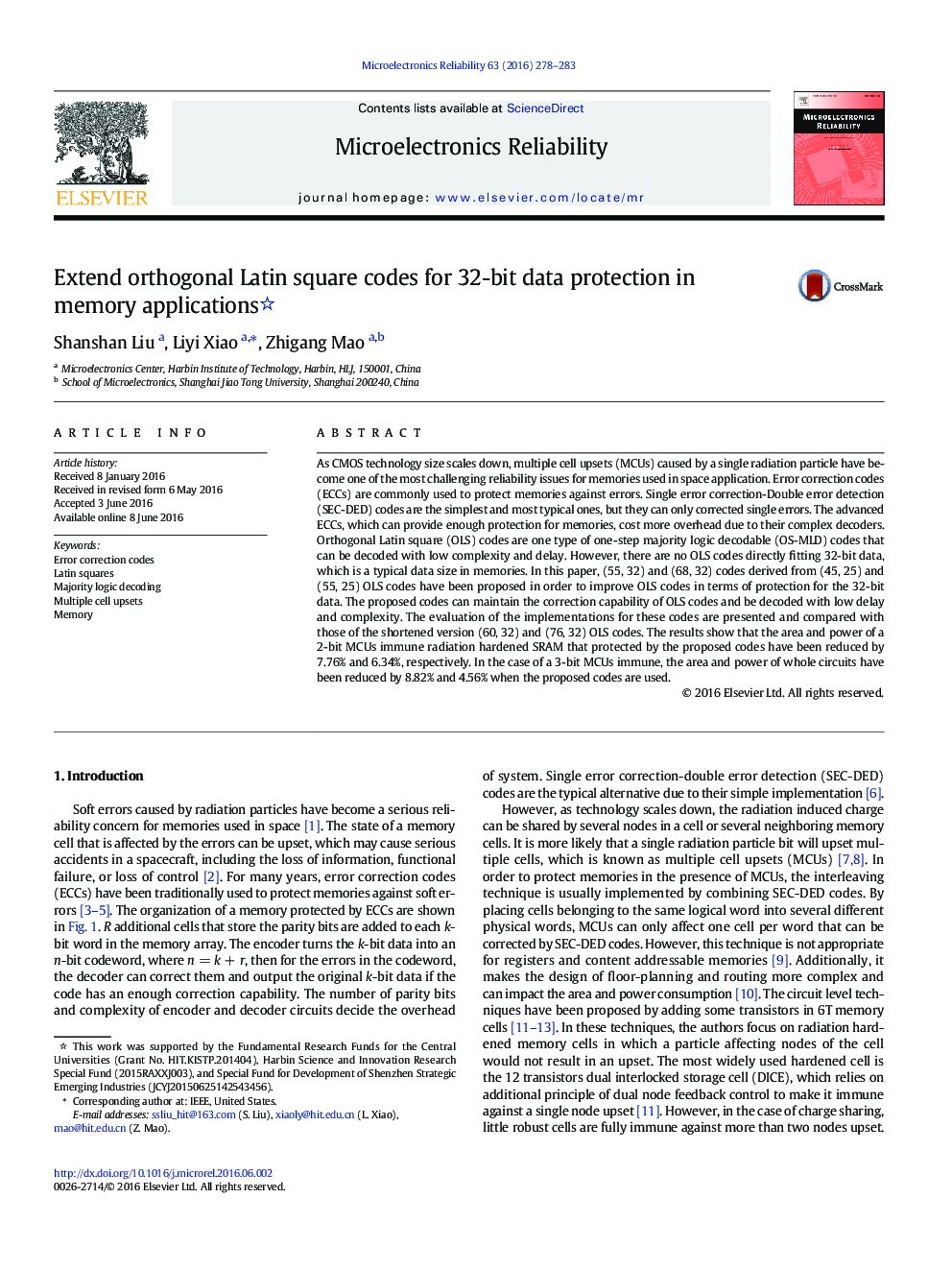| Article ID | Journal | Published Year | Pages | File Type |
|---|---|---|---|---|
| 548854 | Microelectronics Reliability | 2016 | 6 Pages |
As CMOS technology size scales down, multiple cell upsets (MCUs) caused by a single radiation particle have become one of the most challenging reliability issues for memories used in space application. Error correction codes (ECCs) are commonly used to protect memories against errors. Single error correction-Double error detection (SEC-DED) codes are the simplest and most typical ones, but they can only corrected single errors. The advanced ECCs, which can provide enough protection for memories, cost more overhead due to their complex decoders. Orthogonal Latin square (OLS) codes are one type of one-step majority logic decodable (OS-MLD) codes that can be decoded with low complexity and delay. However, there are no OLS codes directly fitting 32-bit data, which is a typical data size in memories. In this paper, (55, 32) and (68, 32) codes derived from (45, 25) and (55, 25) OLS codes have been proposed in order to improve OLS codes in terms of protection for the 32-bit data. The proposed codes can maintain the correction capability of OLS codes and be decoded with low delay and complexity. The evaluation of the implementations for these codes are presented and compared with those of the shortened version (60, 32) and (76, 32) OLS codes. The results show that the area and power of a 2-bit MCUs immune radiation hardened SRAM that protected by the proposed codes have been reduced by 7.76% and 6.34%, respectively. In the case of a 3-bit MCUs immune, the area and power of whole circuits have been reduced by 8.82% and 4.56% when the proposed codes are used.
